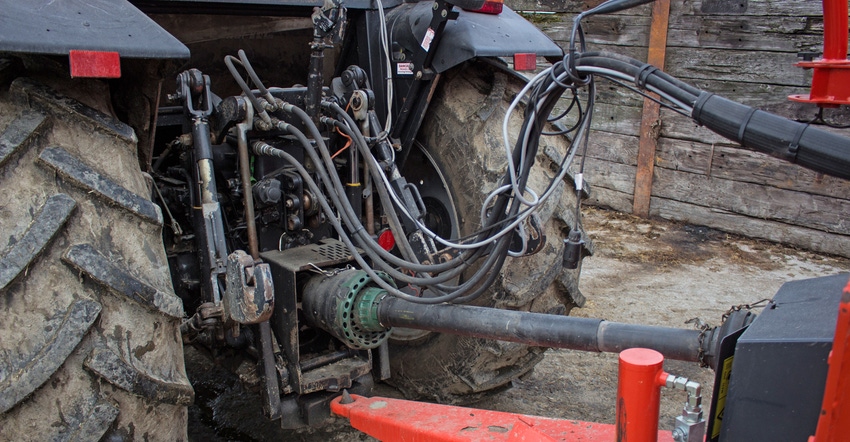February 28, 2022

The harsh winter weather is one example of why livestock and grain farmers should have an emergency plan for the farm. Farming is a dangerous occupation, and with spring about a month away, it is an excellent time to do some thinking and planning.
In the event of a mishap or emergency, many first responders may be volunteers who have various levels of training, certification and equipment. For most farms, an emergency may include a pesticide, fuel or manure spill; an ammonia release; catastrophic animal loss; and silage leachate, manure or silo gases. It may even include a cybercrime or ransomware attack.
The most basic level of protection includes putting a map of the farmstead inside an emergency tube at a visible location for emergency responders. The map should identify exactly where and in which buildings hazardous materials — such as gas, diesel, pesticides, propane, treated seed and other flammables — are stored. It should identify where the water wells or any unused or abandoned wells are located.
First-aid kits
Farmworkers should know where fire extinguishers and first-aid kits are located. The National Education Center for Agricultural Safety offers farm first-aid kits for $50. Designed with farm injuries in mind, the kits contain first-aid supplies — including 114 pieces, such as a large scissors/trauma shears to cut through heavy clothing, large bandages and knuckle bandages for when cuts and scrapes require more than a small adhesive bandage, a thermal blanket to protect from the elements, eye wash, instant cold compresses (ice packs), a CPR face shield, and much more.
This kit is small enough to fit under the seat of a pickup truck or in a tractor or combine. To order a kit, call Gloria Reiter at 563-556-5110, ext. 371, or email [email protected].
Another hazard some farmers face this time of the year is moving grain out of storage. Augers, ladders and crusting grain present possible life-threatening hazards. Where are the electrical shut-off switches located?
Carhartt clothes are popular because the thread used is cotton and will break quicker than nylon threads. Having clothes torn off that get caught in PTO equipment may be embarrassing, but the person may survive.
Protect data
Farm preparedness now includes protecting all the data modern farm equipment provides. One question farmers ask is, “Who owns, or even has access to, the farm data?” Another question might be, “How does a farmer protects their electronic information?”
Farming is a business, with computers in farm offices, on tractors, combines, sprayers and portable devices such as smartphones. Strong passwords, security settings and updates, conducting backups, separating business and personal information, and reviewing accounts for unusual activity are just a few things to consider.
Farm preparedness includes talking to your insurance agent about coverage when transporting hazardous materials, such as some pesticides, anhydrous ammonia, gas, propane or LP gas or diesel, and even livestock. Ask your insurance agent about cyber-insurance coverage if you lose all your computer information because of a cyberattack.
The Farm Emergency Contact File is a form for farmers to put emergency contact phone numbers onto one central form, and then in one central location. The file has a place for local emergency phone numbers, and another place for important phone numbers of state and federal agencies, such as the agriculture pollution emergency hotline and FBI field offices.
Once completed, this listing of phone numbers should be posted in one central farm location. An electronic Emergency Planning for the Farm, bulletin E-2575ET, is available on the internet.
Birkey is a Michigan State University Extension educator emeritus and owner of Spartan Ag.
You May Also Like




